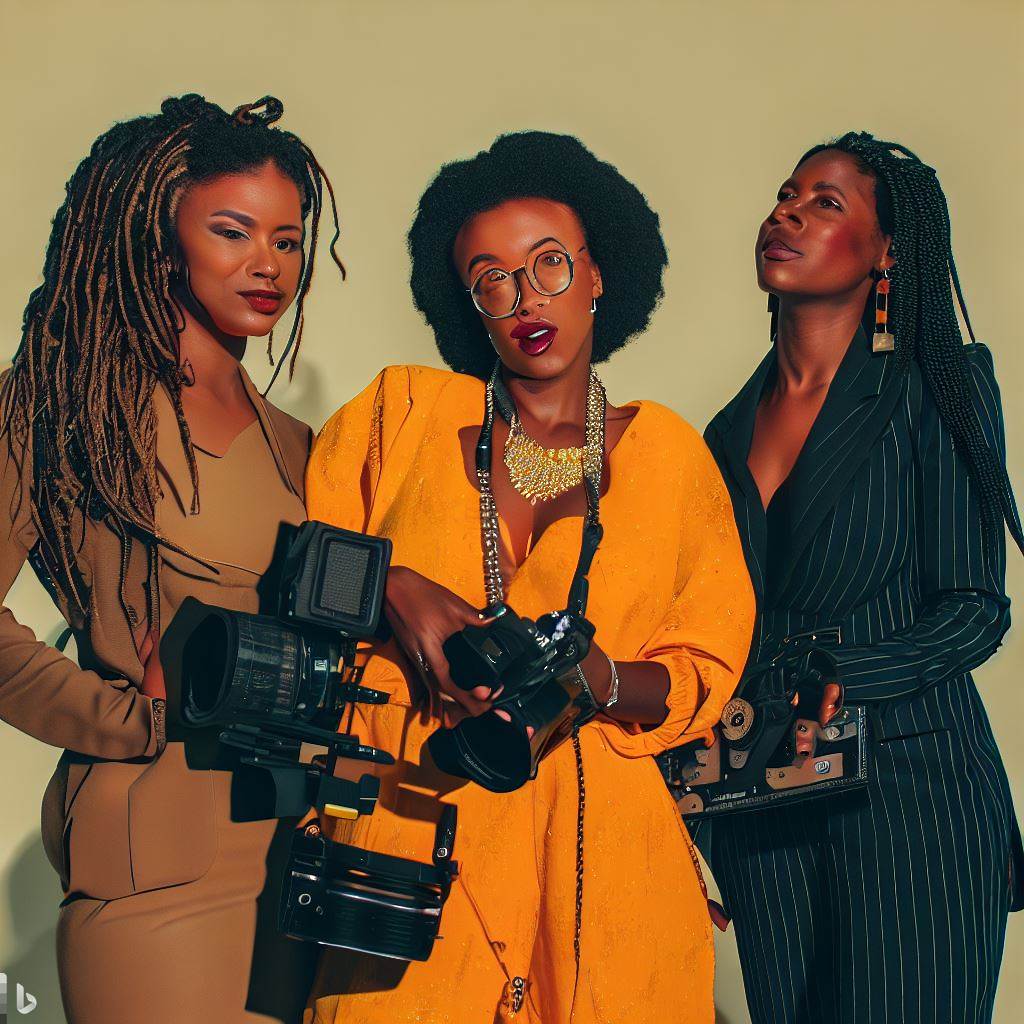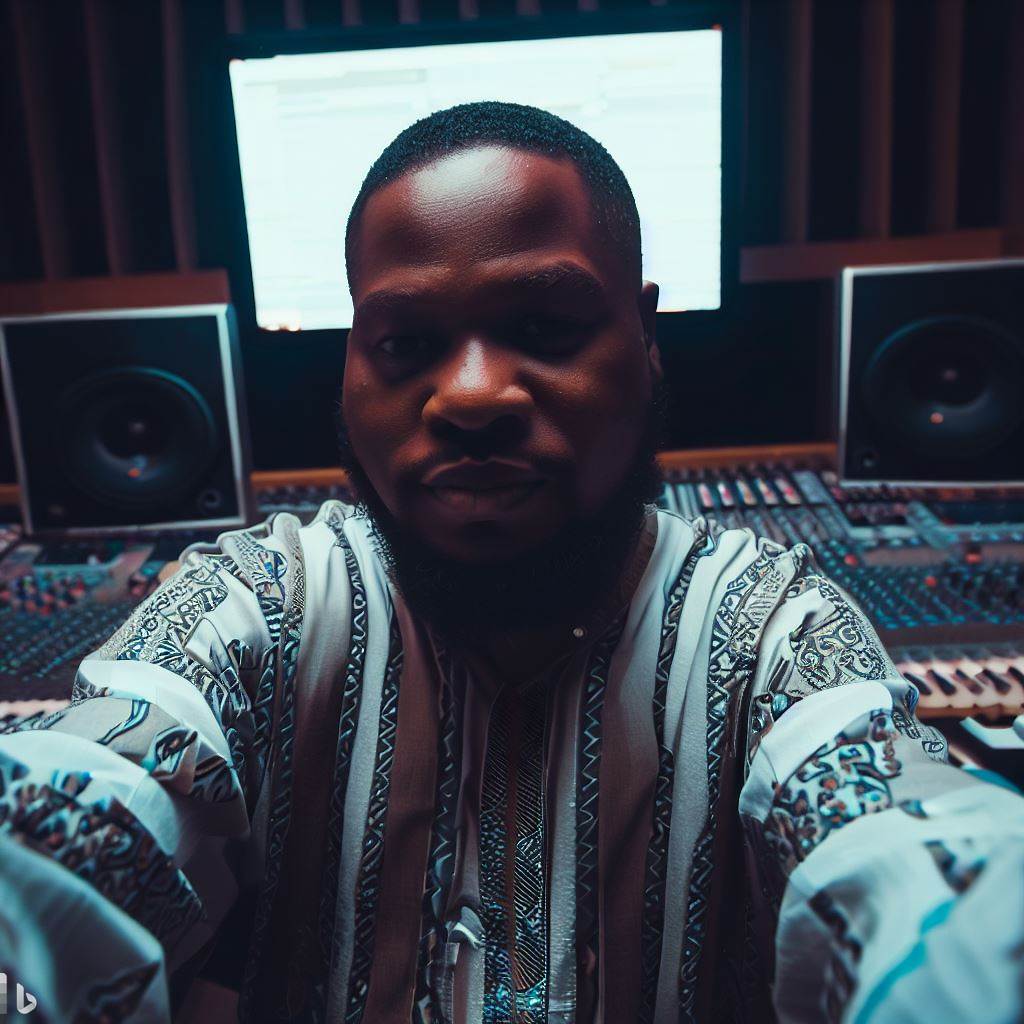Introduction
A brief overview of Nigeria’s music scene
Nigeria has a vibrant and diverse music scene, known for its unique genres like Afrobeats and Highlife.
Importance of music directors in the industry
Music directors play a vital role in shaping the sound and visuals of music videos and performances.
Successful Women Music Directors in Nigeria
Successful women music directors have made significant contributions to Nigeria’s music scene.
- Kemi Adetiba: Known for her directorial skills in the music video industry, Kemi Adetiba has worked with top Nigerian artists and won numerous awards.
- Clarion Chukwurah: Apart from her acting talent, Clarion Chukwurah has directed music videos for popular Nigerian musicians, showcasing her diverse skills.
- Ciara Adetupi: With her innovative and creative style, Ciara Adetupi has directed remarkable music videos that have gained international recognition.
- Clarence Peters: Although male, Clarence Peters has elevated women’s representation in the industry by collaborating with female artists and directing their music videos.}
- Meji Alabi: Meji Alabi has made waves in the music scene by directing captivating music videos for both male and female artists.
- Patience Ozokwor:Known primarily as an actress, Patience Ozokwor has also showcased her talent as a music video director, bringing a unique touch to Nigerian music videos.
- Bunmi Adigwe: Bunmi Adigwe’s directorial skills have provided a visual aesthetic to Nigerian music videos, adding depth and creativity.
Women music directors in Nigeria have played a significant role in shaping the music scene, contributing their unique perspectives and talents.
Their work has elevated the visual storytelling in music videos, making Nigeria’s music industry more diverse and globally recognized.
With their immense contributions, these women have undoubtedly left an indelible mark on Nigeria’s music scene.
Read: The Rising Importance of Mixing Engineers in Nigerian Music
Background of Nigeria’s Music Scene
Growth and Evolution of the Industry
- Nigeria’s music scene has experienced significant growth and evolution over the years.
- With a population of over 200 million people, Nigeria has a vibrant and diverse music culture.
- The industry has witnessed the emergence of various genres such as Afrobeat, Afropop, Highlife, and Nigerian hip hop.
- The introduction of digital platforms and social media has accelerated the growth of the music industry.
- Artists now have better access to global audiences and opportunities for collaborations with international acts.
Dominant Genres and Artists
- Afrobeat, a fusion of traditional Nigerian music and Western music styles, has gained international recognition.
- Artists like Fela Kuti and his sons Femi and Seun Kuti have played significant roles in popularizing Afrobeat.
- Afropop, characterized by catchy melodies and infusion of Afrobeat elements, dominates the charts.
- Artists like Davido, Wizkid, and Burna Boy have propelled Afropop to global audiences, earning international acclaim.
- Highlife, a genre rooted in traditional Igbo music, remains popular, with artists like Flavour N’abania leading the way.
Additionally, the popularity of artists and genres can change over time, so it’s advisable to check the most recent sources for the latest developments in Nigerian music.
Challenges Faced by Music Directors
- Limited budgets often restrict the creative vision of music directors in Nigeria.
- Limited access to state-of-the-art equipment and facilities hinders the quality of music production.
- Copyright infringement and piracy pose significant challenges to protecting artists’ intellectual property.
- The lack of a strong music distribution network makes it difficult for music directors to reach wider audiences.
- Competition from international music scenes makes it challenging for Nigerian music directors to stand out.
Successful Women Music Directors in Nigeria’s Music Scene
Here is a list of successful women music directors who have made a significant impact in Nigeria’s music scene:
- Clarence Peters: As one of Nigeria’s top music video directors, Clarence Peters has worked with numerous artists and won several awards for his creative visuals.
- Kemi Adetiba: Known for her exceptional storytelling through music videos, Kemi Adetiba has directed videos for top artists like Wizkid and Tiwa Savage.
- Meji Alabi: A British-Nigerian music director, Meji Alabi has directed visually stunning videos for artists like Burna Boy, Tiwa Savage, and Maleek Berry.
- Unlimited L.A: Popularly known for his work with top Afropop artists, Unlimited L.A has directed captivating videos for Olamide, Mayorkun, and others.
- Moe Musa: With a portfolio of directing music videos for Nigerian and international artists, Moe Musa has established himself as a go-to director for captivating visuals.
These successful women music directors have broken barriers and achieved remarkable success in a male-dominated industry.
Their creative vision and dedication have played a vital role in shaping the Nigerian music scene.
Read: Foley Artistry: A Hidden Profession Boosting Nigeria’s Film Success

Find Out More: How to Become a Successful Artists’ Manager in Nigeria
Successful Women Music Directors in Nigeria
Kemi Adetiba
- Background and education: Kemi Adetiba is a Nigerian film director and music video director. She was born and raised in Lagos, Nigeria.
- Notable projects and collaborations: Adetiba began her career as a radio presenter before transitioning into music video directing.
Some of her notable projects include directing music videos for artists such as Tiwa Savage, Wizkid, and Banky W. - Achievements and recognition: Adetiba has received several accolades for her work, including the award for Best Director at the 2017 Africa Magic Viewers Choice Awards.
She has also been recognized internationally for her talent and creativity. - Impact on the music industry: Adetiba’s unique storytelling and visual style have had a significant impact on the Nigerian music industry.
Her music videos are known for their high production value and cinematic quality.
Profile 2: Director Pink
- Background and education: Director Pink, whose real name is Clara Okoro, is a Nigerian music video director and cinematographer.
- Notable projects and collaborations: Director Pink has worked with many prominent Nigerian artists, such as Davido, Burna Boy, and Olamide.
Her music videos are known for their vibrant visuals and innovative concepts. - Achievements and recognition: Director Pink’s talent and creativity have earned her numerous awards and nominations.
She has been recognized for her contributions to the Nigerian music industry. - Impact on the music industry: Director Pink’s unique visual style has had a significant impact on the Nigerian music industry.
Her music videos have helped to elevate the standard of music visuals in the country.
Profile 3: Kiki Melissa
- Background and education: Kiki Melissa is a Nigerian music video director and editor. She studied film production at a prestigious university in Nigeria.
- Notable projects and collaborations: Kiki Melissa has worked with various Nigerian artists, including Yemi Alade, Tekno, and Patoranking.
Her music videos often showcase vibrant and colorful visuals. - Achievements and recognition: Kiki Melissa’s talent and unique visual style have earned her recognition within the Nigerian music industry.
She has been nominated for several awards for her music video directing. - Impact on the music industry: Kiki Melissa’s creative approach to music video directing has had a positive impact on the Nigerian music industry.
Her videos often captivate viewers with their artistic and storytelling elements.
Kemi Adetiba, Director Pink, and Kiki Melissa creatively shaped Nigeria’s music industry with their unique styles and talents.
They have elevated the standard of music videos in Nigeria and have been recognized for their achievements both locally and internationally.
Their impact on the music industry is undeniable, and they continue to inspire and pave the way for future women music directors in Nigeria.
Read: Animation Education: Top Courses in Nigeria
Challenges and Opportunities for Women Music Directors
Gender bias and discrimination
- Women music directors often face gender bias and discrimination in the male-dominated music industry.
- They are often overlooked for opportunities and faced with skepticism about their abilities.
- Preconceived notions about women’s roles in music limit their growth and recognition.
- The industry needs to address these biases and provide equal opportunities for women music directors.
Lacking representation in leadership positions
- Women music directors are underrepresented in leadership positions within the music industry.
- They often struggle to break through the glass ceiling and attain top decision-making roles.
- This lack of representation hinders the progress of women directors and deprives the industry of diverse perspectives.
- The music industry should actively work towards promoting more women into leadership positions.
Steps towards greater inclusion and empowerment
- Education and mentorship programs can help empower women music directors and strengthen their skills.
- Organizations should implement policies that promote diversity and inclusion, ensuring equal opportunities for all.
- Collaboration between industry stakeholders can create a supportive network for women directors.
- Recognizing and celebrating the achievements of successful women music directors can inspire others and challenge stereotypes.
- Networking events and conferences specifically for women can facilitate connections and collaborations within the industry.
- The industry should provide platforms for women music directors to showcase their talent and gain visibility.
- Government initiatives and funding can support the growth of women music directors and increase their representation.
- Encouraging young girls to pursue careers in music directing can help address the gender imbalance from an early stage.
- Continuous advocacy efforts can raise awareness about the challenges faced by women directors and push for change.
- Men in the industry should actively support and promote women directors, creating a more inclusive environment.
women music directors in Nigeria’s music scene face challenges such as gender bias, discrimination, and a lack of representation in leadership positions.
However, there are opportunities for change and progress.
Addressing gender biases, promoting diversity, and offering education and mentorship fosters inclusivity and equality in the industry.
Stakeholders must collaborate, offering chances to women directors, celebrating feats, fostering a dynamic and diverse music industry.
Read: The Impact of Tech on Animation Direction in Nigeria
Conclusion
Recap of successful women music directors highlighted
- Femi Ayeni who has worked with top Nigerian artists and won several awards for her directing.
- Kemi Adetiba who has directed top music videos and went on to direct a successful movie.
- Clarence Peters who is known for his creativity in directing and his work with both male and female artists.
Final thoughts on the growing presence and importance of women in Nigeria’s music scene
Women music directors in Nigeria have proven their talent and skills, breaking barriers and achieving success in a male-dominated industry.
Their contribution to the development and growth of the Nigerian music scene is invaluable.
As more opportunities and recognition are given to women, we can expect to see even more talented and successful women music directors in the future.
It is important to celebrate and support their achievements and continue to create a more inclusive industry for all.




